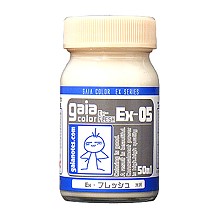


(For Latino Americans, the figure is 20%.) The actor Hill Harper of The Good Doctor, a Harvard Law School friend of former President Barack Obama, is a pitchman for Black Wall Street, a digital wallet and crypto trading service developed with Najah Roberts, a Black crypto expert. adults overall own cryptocurrency, 18% of Black Americans have gotten in on it. In April, a Harris Poll reported that while just 16% of U.S.

About 44% of those who own crypto are people of color, according to a June survey by the University of Chicago’s National Opinion Research Center. In fact, surveys indicate that people of color are investing in cryptocurrency in ways that outpace or equal other groups-something that can’t be said about most financial products. What they are is a cross section of the world of Black crypto traders, educators, marketers and market makers-a world that seemingly mushroomed during the pandemic, rallying around the idea that this is the boon that Black America needs. So, not exactly your stereotypical “Bitcoin bro.” Contrary to the image associated with cryptocurrency since it entered mainstream awareness, almost no one at the summit is a fleece-vest-wearing finance guy or an Elon Musk type with a grudge against regulators. As a white-haired engineer with the air of a lecturing statesman, Mapondera’s conviction feels very on-brand at a conference themed “Reparations and Revolutions.” Along with summit organizer Sinclair Skinner, Mapondera co-founded BillMari, a service that aims to make it easier to transmit cryptocurrency to wherever the sons and daughters of Africa have been scattered. “What we really need to be doing is to now utilize the technology behind blockchain to enhance the quality of life for our people,” says Christopher Mapondera, a Zimbabwean American and the first official speaker. Online and in person, on the campus of Howard University in Washington, D.C., an estimated 1,500 mostly Black people have gathered to talk about crypto-decentralized digital money backed not by governments but by blockchain technology, a secure means of recording transactions-as a way to make money while disrupting centuries-long patterns of oppression. It is a space for discussing the relationship between money and man, the powers that be and what they have done with power. This is not simply a gathering for those who would like to ride whatever bumps and shocks, gains and losses come with cryptocurrency. At the Black Blockchain Summit, there is almost no conversation about making money that does not carry with it the possibility of liberation.


 0 kommentar(er)
0 kommentar(er)
